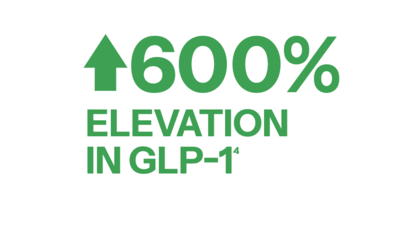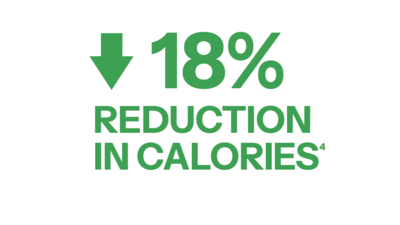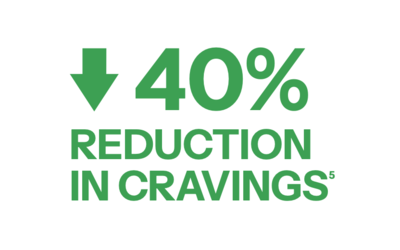Calocurb® CLINICAL
Calocurb® CLINICAL is a practitioner-exclusive supplement that supports appetite control by working with the body’s natural hormonal signals. It features Amarasate®, a clinically studied extract of New Zealand bitter hops, delivered in a delayed-release capsule designed to reach the small intestine where it activates bitter taste receptors. This triggers the release of key satiety hormones including GLP-1, CCK and PYY, which work together to significantly reduce hunger, cravings, and caloric intake. Fast-acting and plant-based, Calocurb® CLINICAL offers a targeted, science-driven approach to supporting healthy weight management.
Clinical Applications:
- Reduces Appetite and Food Cravings
- Supports Long-Term Weight Management
- Stimulates Natural GLP-1, CCK and PYY Release
- Complements Lifestyle and Pharmaceutical Weight Loss Strategies
- Enhances Adherence to Intermittent Fasting and Time-Restricted Eating
Appetite and Craving Regulation
Hunger and food cravings are governed by a complex interplay of physical, hormonal and psychological signals. Peripheral regulation relies on hormonal cues to signal hunger and fullness—primarily through gut peptides like ghrelin, glucagon-like peptide-1 (GLP-1), cholecystokinin (CCK) and peptide YY (PYY).1 However, this finely tuned system can become dysregulated by modern lifestyle factors—such as highly palatable foods, sleep deprivation, stress and metabolic imbalances—leading to increased hunger or cravings and, ultimately, unwanted weight gain or difficulty maintaining a healthy weight.
MECHANISMS OF APPETITE REGULATION WITH GLP-1, CCK AND PYY
Gut peptides regulate appetite both locally in the gut and centrally in the brain. GLP-1, CCK and PYY are released from enteroendocrine cells in response to food intake.1 Local satiating effects include delayed gastric emptying and peristalsis with central effects including negative feedback inhibition in the hypothalamus.
Historical Appetite Manipulation
Throughout history, humans have sought ways to regulate appetite. Traditional practices often relied on local foodstuff or botanicals to manipulate appetite during long periods of scarcity or travel. For example, Australian Aboriginals consumed highly fibrous tubers that induced satiety through gastric stretch, while Scottish Highlanders used the bitter heath pea to suppress appetite during medieval famine.2,3 Bitter compounds in particular exert a medicinal-like effect by strongly stimulating bitter taste receptors (TAS2Rs) on enteroendocrine cells, enhancing their release of GLP-1, CCK and PYY.
AMARASATE® : A NOVEL, APPETITE-SUPPRESSING NEW ZEALAND BITTER HOPS EXTRACT
In 2010, the New Zealand government funded a large grant to investigate the appetite suppressive effects of bitter plant compounds as a potential treatment for weight management. After investigating over 1,000 different bitter plant compounds, the researchers concluded that a native New Zealand hops extract produced the strongest TAS2R stimulation, resulting in the greatest release of appetite-suppressing gut peptides. The researchers named the extract Amarasate®, derived from Latin, meaning “bitter satiation.”

Science Backed!






